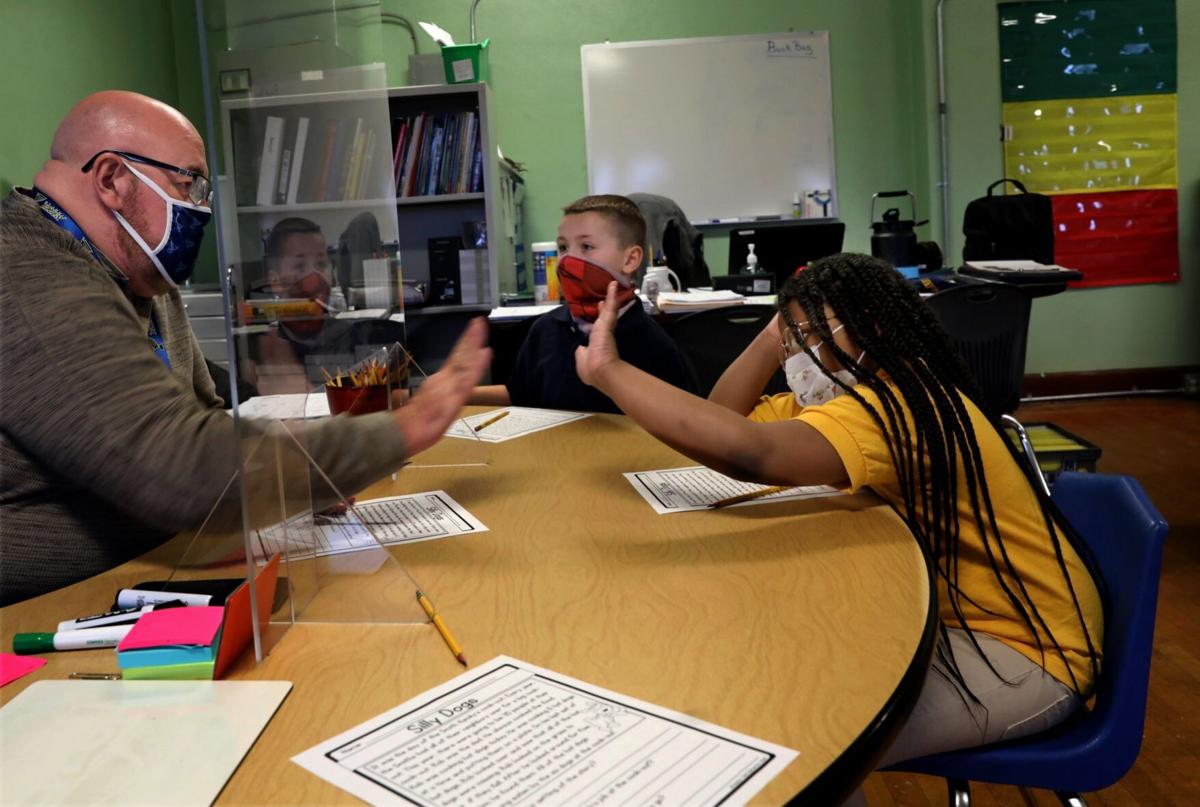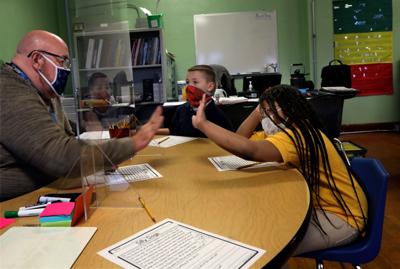Last spring, fewer than half of students across the St. Louis region tested at a proficient level in English (47%) and math (36%) in the Missouri Assessment Program, marking a significant slide over the past two years.
In spring of 2019, the last time students were tested before the pandemic, closer to half of students scored that high in both subjects. Tests were canceled nationwide in March 2020 after COVID-19 started to spread.
“No one was surprised to see the scores go down,” said Hancock Place Superintendent Kevin Carl. “But there is more to it. How many kids took that test all the way through? How valuable is that data?”
The local district test scores, and their decline since 2019, align closely with the Missouri average, according to statewide data released earlier this fall. Public education advocates have long contended that the scores are a more accurate representation of students’ socioeconomic status rather than school quality.
People are also reading…
Testing conditions were suboptimal this year across all districts. The tests had to be taken in-person, so a number of students attending classes virtually opted out. Some students took the tests outdoors or just answered a few questions and quit, Carl said.
A group of local superintendents had urged state education Commissioner Margie Vandeven not to release the test scores and “let school districts spend their time and energy meeting the needs of their students,” according to a September letter from EdPlus.
“Between the changes in the test and all of the uncertainty of teaching with COVID, there are a lot of irregularities with the test scores,” said Carl, president of the board of directors for EdPlus, a nonprofit that serves about 60 member school districts in the region.
Hancock Place and other districts prefer to use their in-house assessments to gauge student progress over the course of the year, he added.
Millions of dollars in federal pandemic relief funds have been allocated to address learning loss, but the funds must be released to school districts by the Missouri Legislature in the 2022 session.
State education officials including Vandeven have urged caution when analyzing the spring 2021 test scores and warned against comparisons to previous years.
While most districts in the St. Louis region started the 2020-21 school year online, they staggered returns to in-person learning, with some districts such as Ferguson-Florissant and Hazelwood deciding not to open their doors until well into the spring semester.
Data from the standardized tests show that students who primarily attended school in-person last year outperformed those in virtual learning. Students experienced high rates of absenteeism from illness, quarantines and struggles with internet access, school leaders said.
Fair comparisons to prior years are even more difficult because Missouri stopped releasing annual performance reports for school districts in 2019. The reports take into account test scores, graduation rates, attendance and other metrics and are used in part to determine each district’s accreditation status.
In turn, accreditation decisions have been on hold despite declining test scores in districts including Normandy and Riverview Gardens, which are provisionally accredited. If such districts again lapsed into unaccredited status, a state law would be triggered that allows students to transfer to higher performing districts.
In Normandy, 4.5% of students tested proficient or advanced in math and 13.6% scored at those levels in English. Fewer than 1% of students in Riverview Gardens reached those levels in math and 9.5% in English.
No district in the St. Louis region moved out of the perennial top or bottom performers, with Brentwood, Clayton, Kirkwood, Ladue and Webster Groves scoring highest and Ferguson-Florissant, Jennings, Normandy, Riverview Gardens and St. Louis Public Schools scoring lowest.
In St. Louis Public Schools, 18% of students scored proficient or advanced in English compared with a charter school average of 28.4%. In math, 10.4% of SLPS students and 15.8% of charter school students reached the mark.
The 16 charter school networks in St. Louis are not accredited by the state and are evaluated by their sponsors in part by performance against SLPS. Five scored lower than the district in English and math — Arch Community, Eagle Prep, KIPP, La Salle and Lift for Life. The district also outperformed Biome and Hawthorn in math.
Two charters, City Garden and Lafayette Prep, scored higher than the state average in English and math.















